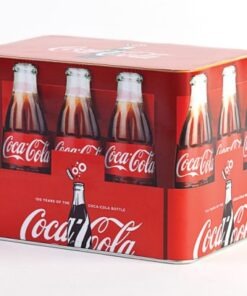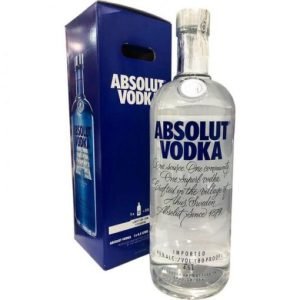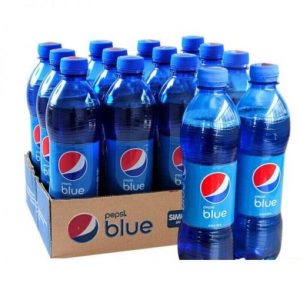No products in the cart.
Uncategorized
Most Consumed Beverages in the USA
Most Consumed Beverages in the USA
The most consumed beverages in the United States varied widely, catering to a diverse range of tastes, preferences, and consumption patterns.
Here are some of the beverages that were historically popular in the USA
Coffee: Coffee has consistently ranked as one of the most consumed beverages in the US. It is an integral part of American culture, with millions of people starting their day with a cup of coffee. The growth of coffee shops, chains like Starbucks, and the increasing popularity of specialty coffees and cold brews have contributed to its enduring popularity.
Carbonated Soft Drinks: While there has been a noticeable decline in recent years due to health concerns and changing consumer preferences, carbonated soft drinks like cola still held a significant share of the beverage market. Brands like Coca-Cola and Pepsi have been iconic choices for many Americans, although the demand for healthier alternatives has prompted a shift towards low-sugar and no-sugar options.

Bottled Water: As health consciousness increased, bottled water consumption surged. Many Americans chose bottled water as a convenient and portable option, often seen as a healthier alternative to sugary beverages. The trend towards eco-friendly packaging and reusable bottles gained momentum as well.
Tea: Tea, both iced and hot, has maintained its popularity in the US. Iced tea, particularly sweet tea in the Southern states, is a staple beverage, especially during warmer months. Herbal teas and flavored variations have also gained traction among health-conscious consumers.
Milk: Despite a slight decline due to concerns over lactose intolerance and dietary preferences, milk remains a commonly consumed beverage in the US. Varieties like skim, 2%, and whole milk, along with plant-based alternatives like almond milk, soy milk, and oat milk, offer choices to a diverse consumer base.
Alcoholic Beverages: Alcoholic beverages, including beer, wine, and spirits, are consumed widely by adults in the US. Craft beer culture and the emergence of local wineries and distilleries have contributed to a growing interest in unique and diverse alcoholic options.
Sports and Energy Drinks: These beverages gained popularity due to their association with providing energy and hydration, especially among athletes and those with active lifestyles. However, concerns over high sugar content and artificial additives have prompted some consumers to seek alternatives.
Juices and Smoothies: While traditional fruit juices faced challenges due to their high sugar content, freshly squeezed juices and healthy smoothies gained traction as nutritious options. Green juices and smoothies made with vegetables and fruits became popular among health-conscious individuals.
Hot Alcoholic Beverages
Alcoholic beverages in private clubs typically mirror those found in regular establishments, but there might be some variations in terms of selection, pricing, and atmosphere due to the exclusive nature of these clubs. Private clubs are membership-based venues that offer a more controlled and often more refined environment for socializing, networking, and entertainment. Here’s what you might expect in terms of alcoholic beverages in a private club:
- Extensive Selection: Private clubs often strive to provide a diverse and high-quality selection of hot alcoholic beverages. This might include a wide range of spirits (whiskey, vodka, rum, gin, etc.), beers (including craft and international options), wines (both red and white), and sometimes even specialty cocktails crafted by skilled mixologists.

- Premium and Exclusive Offerings: Private clubs may offer premium and top-shelf options that are not typically found in regular bars or restaurants. These could include rare wines, aged spirits, and limited-edition releases.
- Customized Cocktails: Many private clubs have skilled bartenders who can create customized cocktails based on members’ preferences. This adds a personal touch to the drinking experience and allows members to enjoy unique flavors that cater to their tastes.
- Professional Bartenders: Private clubs often employ experienced bartenders who are well-versed in mixing drinks, understanding flavor profiles, and providing exceptional service.
- Controlled Environment: Private clubs generally maintain a controlled and refined environment. This might mean that the atmosphere is more subdued and focused on sophisticated social interactions rather than rowdy partying. As a result, the selection of beverages might be tailored to suit this atmosphere.
- Exclusive Events: Private clubs often host exclusive events where they might feature specific types of beverages, such as wine tasting sessions, whiskey tastings, or themed cocktail nights.
- Networking Opportunities: Private clubs are known for fostering networking and business relationships. Alcoholic beverages can facilitate this by providing a relaxed setting where members can engage in meaningful conversations.
- Membership Privileges: Members of private clubs usually enjoy benefits such as discounts on drinks, access to private events, and the ability to reserve special seating or private rooms.
- Adherence to Regulations: Despite being private, these clubs are still subject to legal regulations governing the sale and consumption of alcohol. They need to adhere to local and state laws regarding the serving of hot alcoholic beverages.
It’s important to note that private clubs can vary significantly in terms of their offerings and atmosphere. Some might focus more on traditional cocktails and classic spirits, while others might emphasize modern mixology and unique flavor combinations. Always check with the specific club you’re interested in to understand their beverage offerings and policies.
PepsiCo Beverages North America
1. Beverage Portfolio:
PepsiCo Beverages North America offers a diverse portfolio of beverages that cater to a wide range of consumer preferences. Some of the well-known brands under the PBNA umbrella include:

Pepsi: One of the most iconic carbonated soft drink brands globally, known for its cola and various flavor variations.
Mountain Dew: A popular citrus-flavored carbonated beverage known for its bold flavors and distinctive marketing.
Gatorade: A leading sports drink brand that provides hydration and electrolytes to athletes and active individuals.
Tropicana: Known for its fruit juices and smoothies made from a variety of fruits.
LIFEWTR: A premium bottled water brand that often features artistic designs on its packaging.
Aquafina: Bottled water brand that provides hydration options to consumers.
IZZE: A brand known for its sparkling fruit juices and blends.
Lipton Iced Tea: Offering a range of iced tea products, including sweetened, unsweetened, and flavored varieties.
- Innovation and Health Focus:
PepsiCo Beverages North America has been actively involved in product innovation and adapting to changing consumer preferences. This includes efforts to offer healthier options, reduce sugar content in beverages, and expand its portfolio to include more functional and wellness-oriented beverages.
- Sustainability Initiatives:
Like many major companies, PepsiCo is committed to sustainability. PBNA has taken steps to reduce its environmental impact through initiatives such as lightweighting packaging, promoting recycling, and working toward using more sustainable materials in its packaging.
- Marketing and Engagement:
PBNA engages consumers through various marketing campaigns, partnerships, and events. The company has a strong online and social media presence, often collaborating with influencers and artists to connect with younger audiences.
- Distribution:
PepsiCo Beverages North America has an extensive distribution network that ensures its products reach a wide range of retail locations, including convenience stores, supermarkets, restaurants, and more.
- Corporate Social Responsibility:
PepsiCo and its beverage division emphasize corporate social responsibility (CSR) initiatives. These may include community engagement, charitable partnerships, and initiatives focused on promoting health and wellness.

febulous drinks